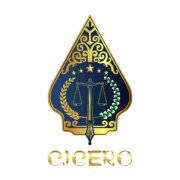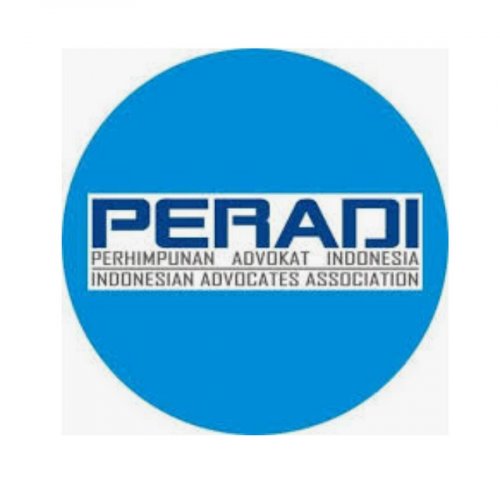Best Private Equity Lawyers in Indonesia
Share your needs with us, get contacted by law firms.
Free. Takes 2 min.
Or refine your search by selecting a city:
List of the best lawyers in Indonesia
About Private Equity Law in Indonesia
Private equity (PE) refers to investment funds or individuals who invest directly into private companies or conduct buyouts of public companies to delist them from stock exchanges. In Indonesia, the private equity sector has grown rapidly in recent years, becoming an important source of capital for expanding businesses, infrastructure projects, and startups. Private equity funds in Indonesia usually focus on growth opportunities within the domestic market, seeking out companies with strong expansion potential.
The legal landscape for private equity in Indonesia involves several local regulations and government agencies. Investors, fund managers, and businesses seeking private equity must navigate complex laws governing company structures, foreign investment, securities, and financial services. Working with knowledge of local law is essential to ensure transactions comply with regulations and to secure the intended investment benefits.
Why You May Need a Lawyer
Engaging in private equity deals in Indonesia involves considerable legal complexity. You may need a lawyer in the following situations:
- Structuring and negotiating private equity deals, including share purchases, mergers, or acquisitions
- Navigating foreign investment restrictions and obtaining regulatory approvals from authorities such as the Financial Services Authority (OJK) and the Investment Coordinating Board (BKPM)
- Drafting and reviewing agreements, such as shareholder agreements, investment agreements, and sale-purchase agreements
- Conducting legal due diligence on target companies to assess risks and compliance
- Structuring tax-efficient investment vehicles
- Resolving potential disputes between investors, company founders, or management
- Ensuring exit strategies, such as IPOs or secondary sales, comply with local law
- Protecting intellectual property rights and ensuring compliance with anti-corruption and anti-money laundering laws
A knowledgeable lawyer can help guide you through all stages of the process, from deal sourcing and negotiation to exit and regulatory compliance.
Local Laws Overview
Private equity transactions in Indonesia are shaped by a complex regulatory framework. Below are key local laws and regulations that impact PE investments:
- Company Law: Law Number 40 of 2007 concerning Limited Liability Companies governs company formation, shareholder rights, corporate governance, and mergers/acquisitions.
- Investment Law: Law Number 25 of 2007 regulates domestic and foreign investment activities. The Negative Investment List (now called the Positive Investment List) sets out sectors open to foreign investment and any restrictions or requirements.
- Capital Markets Law: Law Number 8 of 1995 regulates securities transactions, public offerings, and company listings. The OJK (Financial Services Authority) is the main supervisory body for the capital market sector.
- Financial Services Regulations: PE funds may need to comply with OJK rules, especially if raising funds from Indonesian investors or managing local investment vehicles.
- Tax Regulations: Taxation of private equity investments, capital gains, dividends, and interest payments is governed by Indonesian tax law. Structuring the fund in a tax-efficient way is a key legal consideration.
- Labor Law: Labor protections can impact restructuring or post-acquisition integration.
- Anti-Monopoly and Competition Law: Transactions exceeding certain thresholds may require notification to the Indonesian Competition Commission (KPPU).
- Anti-Money Laundering (AML) and Anti-Corruption Laws: All investments and fund flows must comply with Indonesia’s strict AML and anti-corruption laws.
Local legal counsel is essential for understanding these regulations, as they are frequently updated and interpreted in complex ways.
Frequently Asked Questions
What is the typical structure of a private equity deal in Indonesia?
Most private equity investments in Indonesia use a share acquisition structure. Investors purchase shares in a local Limited Liability Company, either directly or through a holding company often established in a jurisdiction favorable for tax or regulatory purposes.
Can foreign investors participate in private equity deals in Indonesia?
Yes, foreign investors can participate in private equity, subject to applicable restrictions in the Positive Investment List. Some sectors are open to 100 percent foreign ownership, while others have caps or are closed to foreign investment.
What regulatory approvals are required for private equity transactions?
Private equity transactions may require approvals from the OJK, BKPM, or sector-specific regulators, depending on the industry and size of the investment. Public company acquisitions require additional disclosures and procedures.
How long does a private equity deal typically take to complete in Indonesia?
The timeline can vary, but most deals take three to six months to complete, depending on the complexity of due diligence, regulatory approvals, and negotiations.
What are the main due diligence focuses in Indonesian private equity deals?
Legal due diligence usually covers corporate, financial, tax, employment matters, existing licenses and permits, and any pending litigation or regulatory issues affecting the target company.
Are there tax considerations for private equity investors?
Yes. Taxation in Indonesia applies to capital gains, interest, and dividends. PE funds should plan for withholding taxes, value-added tax, and other local taxes to achieve tax efficiency.
How can private equity investors exit their investment in Indonesia?
Common exit routes are sale to another investor, trade sale to a strategic buyer, or public offering (IPO). Each route has specific legal and regulatory requirements.
Are there special reporting or transparency requirements for private equity funds?
If the fund is regulated under OJK rules or deals with Indonesian investors, financial reporting, transparency, and anti-money laundering compliance requirements will apply.
What protections do minority investors have in Indonesian companies?
The Company Law provides certain protections, but investors often seek additional rights through shareholder agreements, including veto rights, board seats, and reserved matters requiring investor approval.
Do private equity transactions require competition approval?
If the transaction meets certain asset or revenue thresholds, parties must notify the Indonesian Competition Commission (KPPU) post-completion to ensure compliance with anti-monopoly laws.
Additional Resources
For more information about private equity in Indonesia, you can contact or refer to the following organizations:
- Financial Services Authority (OJK) - Regulates and supervises financial services including private equity funds
- Indonesia Investment Coordinating Board (BKPM) - Handles investment licensing and sectoral restrictions
- Indonesian Competition Commission (KPPU) - Oversees competition law compliance in M&A deals
- Indonesia Stock Exchange (IDX) - For public offering and company listing regulations
- Directorate General of Taxes (DGT) - For tax laws impacting investments and structuring
- Local business chambers and international business councils - For general business environment and networking
Next Steps
If you need legal assistance for a private equity matter in Indonesia:
- Identify and clearly define your investment or transaction goals and concerns.
- Gather all relevant documents related to your intended deal, company, or fund.
- Consult an experienced local lawyer specializing in private equity and investment law to review your case and explain your options.
- Ask your lawyer about structuring, compliance requirements, timelines, and cost implications before proceeding.
- Stay informed and updated on regulatory changes in Indonesia that may affect your transaction or investment.
Engaging knowledgeable legal counsel will help protect your interests, ensure compliance, and increase the success and efficiency of your private equity transactions in Indonesia.
Lawzana helps you find the best lawyers and law firms in Indonesia through a curated and pre-screened list of qualified legal professionals. Our platform offers rankings and detailed profiles of attorneys and law firms, allowing you to compare based on practice areas, including Private Equity, experience, and client feedback.
Each profile includes a description of the firm's areas of practice, client reviews, team members and partners, year of establishment, spoken languages, office locations, contact information, social media presence, and any published articles or resources. Most firms on our platform speak English and are experienced in both local and international legal matters.
Get a quote from top-rated law firms in Indonesia — quickly, securely, and without unnecessary hassle.
Disclaimer:
The information provided on this page is for general informational purposes only and does not constitute legal advice. While we strive to ensure the accuracy and relevance of the content, legal information may change over time, and interpretations of the law can vary. You should always consult with a qualified legal professional for advice specific to your situation.
We disclaim all liability for actions taken or not taken based on the content of this page. If you believe any information is incorrect or outdated, please contact us, and we will review and update it where appropriate.
Browse private equity law firms by city in Indonesia
Refine your search by selecting a city.
















